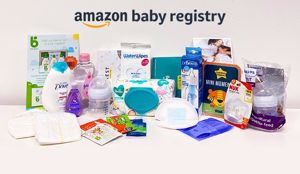Yeast infections are more likely to impact someone while they are pregnant. This is likely due to increased discharge and hormones, especially in the second and third trimesters. Although a yeast infection has no adverse side effects on pregnancy, they are typically harder to control and eliminate, which can be annoying. If left untreated, a yeast infection could pass from you to your baby during childbirth, causing a yeast infection of the mouth, better known as Thrush. Because of this, treating before labor is highly encouraged.
What Is a Yeast Infection?
A yeast infection is an infection of the vagina caused by a fungus called Candida. Some of the most reported symptoms include excess clumpy white vaginal discharge that is odorless, vaginal itching, burning, and inflammation, pain during sex or urination, and redness or a white coating around the vagina. Most of the time, these symptoms are self-reported, but if you ever need help figuring out what is happening, your care provider can also diagnose them with a swab.
Common Causes of Yeast Infection
As I mentioned above, the most common cause of yeast infections in pregnancy is hormone changes and an increase in vaginal discharge. Still, some other possible culprits include taking antibiotics (hence the vicious cycle of UTIs and yeast infection), gestational diabetes, vaginal intercourse, douching, blood or semen, and in some cases, even vaginal exams. If you are finding that your vagina is super sensitive to getting yeast infections, avoiding a lot of these things would be beneficial when possible.
How to Prevent a Yeast Infection
There are things that you can do to prevent yeast infections other than avoiding things entering the vagina. Some of these things include wearing light cotton breathable underwear. It is not the cutest look, but it helps, we promise! Along this same line, wash your underwear on high heat! Hygiene is also essential in avoiding a yeast infection, and regular washing without excessive use of gentle soap, if any. Be sure to completely dry your vagina after washing with either a towel or air drying. Wipe from front to back; if this wasn't drilled into you as a kid, let me do so now. Shower immediately after swimming, excessively sweating or working out, etc. These things can cause dampness and a change in vaginal pH. Pee after sex, yep, I said it, and I mean it, urine is a great way to clean yourself out after intercourse and restore the natural pH of your vagina. Eat more yogurt and natural probiotics! Reducing sugar intake can also be beneficial since sugar tends to feed yeast. And lastly, rest, rest, rest. Our bodies need adequate rest to prevent infection and disease, even more so when we are growing a baby; give yourself the rest that you need.
How to Treat a Yeast Infection
Like many things in pregnancy, there are certain medications that pregnant individuals cannot use that could be used when not pregnant, so what are safe products to use when treating yeast infections? If you want to try out some natural things, you can take an Apple Cider Vinegar bath. The Apple Cider Vinegar is a great natural option that has been tested and found effective. Another option would be to do a vaginal suppository. I recommend a Tea Tree suppository; as one friend described, it is a breath mint for your vagina. But seriously, Tea Tree is a great antifungal and antibacterial. Adding a probiotic to your diet and eating more natural probiotics are other things that can help get rid of yeast infections. I recommend avoiding many sugar and yeast foods while doing these probiotics for the best results. If natural things are not cutting it or you want to jump straight to the point, one safe medication commonly used and commonly effective is called Monistat. Some over-the-counter creams are safe; talk with your care provider about which suits you.
It is essential to be aware of your body during pregnancy to know when a symptom is atypical for your pregnancy and baby. This way, if you start to experience symptoms of something like a yeast infection, you can treat it right away. That said, sometimes the symptoms of a yeast infection mimic those of pregnancy symptoms, but if it makes you question it, having your care provider get a swab is the best answer. Remember that you are the professional of your body and this baby. Trust your gut and get the care that you need.







